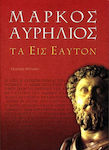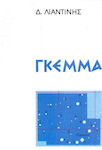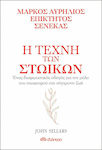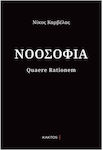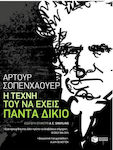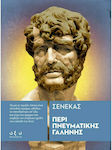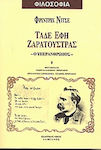Skroutz Buyers Protection
Θάνατον ΔιδόναιCode: 35276696
- Author: Jacques Derrida
- Publisher: Ropi
- Μορφή: Soft Cover
- Έτος έκδοσης: 2022
- Αριθμός σελίδων: 664
- Κωδικός ISBN-13: 9786185289119
- Διαστάσεις: 14×21
Jacques Derrida

Philosophy Books
Πρέπει κάλλιστα να τρώμε ή Ο υπολογισμός του υποκειμένου, Μια συζήτηση με τον Jean-Luc Nancy
from 22,73 LeiAdded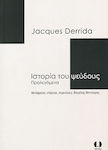
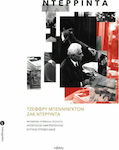
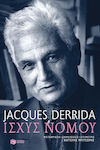
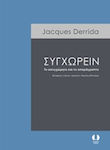
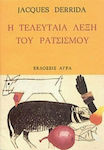
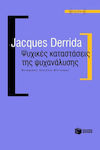


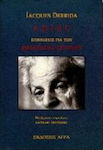
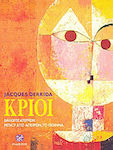
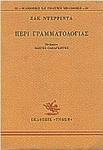

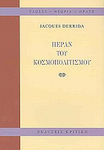
Similar products
All shops
Prices are calculated for:Romania, Other Payment Options
- 99,85 Lei
- 99,85 Lei
- 99,85 Lei
- 112,34 Lei
- 87,40 Lei
Description
The main pillar of the book is death, specifically the phrase "giving death". In this thematic, Derrida engages with Plato, Kant, Kierkegaard, Heidegger, Patocka, and Levinas on one hand, and with Baudelaire and Kafka on the other. The central pillar of the book, regarding death, is mainly surrounded by three others: responsibility, sacrifice, and the secret. The thread that revolves around these three pillars initially unfolds by branching out, connecting the spaces of ontology, religion, and ethics. A fundamental question is whether the concept of responsibility towards the other and, more generally, ethics can exist with or without resorting to religion, specifically the transcendence of a supreme being, God. For Kierkegaard, Levinas, and Patocka, responsibility is based on the concept of the religious and primarily exists for the Wholly Other, God, while for Derrida, it is earthly as it concerns the human as the wholly other. For Heidegger, responsibility is limited to the ontological, non-ethical dimension of the free Dasein, which is responsible for facing its own impending death. Additionally, "giving death to oneself for the other" cannot fully replace the death of the other. My own death always precedes the death of the other. Conversely, Levinas and Derrida believe that the death of the other is primary, and my self-sacrifice for their salvation signifies the possibility of replacing their death. The "Sacrifice of Isaac" in Kierkegaard's Fear and Trembling serves as the exemplary example of connecting sacrifice with the secret, which links Abraham to the divine command to sacrifice his beloved son: Abraham must keep this secret from everyone, to preserve his absolute relationship with the Absolute Other, God. In this book, Derrida provides an innovative interpretation of the Old Testament narrative of the "Sacrifice of Abraham" through his deconstructive reading of Kierkegaard's book. Additionally, here, for the first time, the French philosopher presents his own understanding and conceptualization of God.
Specifications
- Format
- Soft Cover
- Number of Pages
- 664
- Publication Date
- 2022
- Dimensions
- 14x21 cm
Important information
Specifications are collected from official manufacturer websites. Please verify the specifications before proceeding with your final purchase. If you notice any problem you can report it here.















